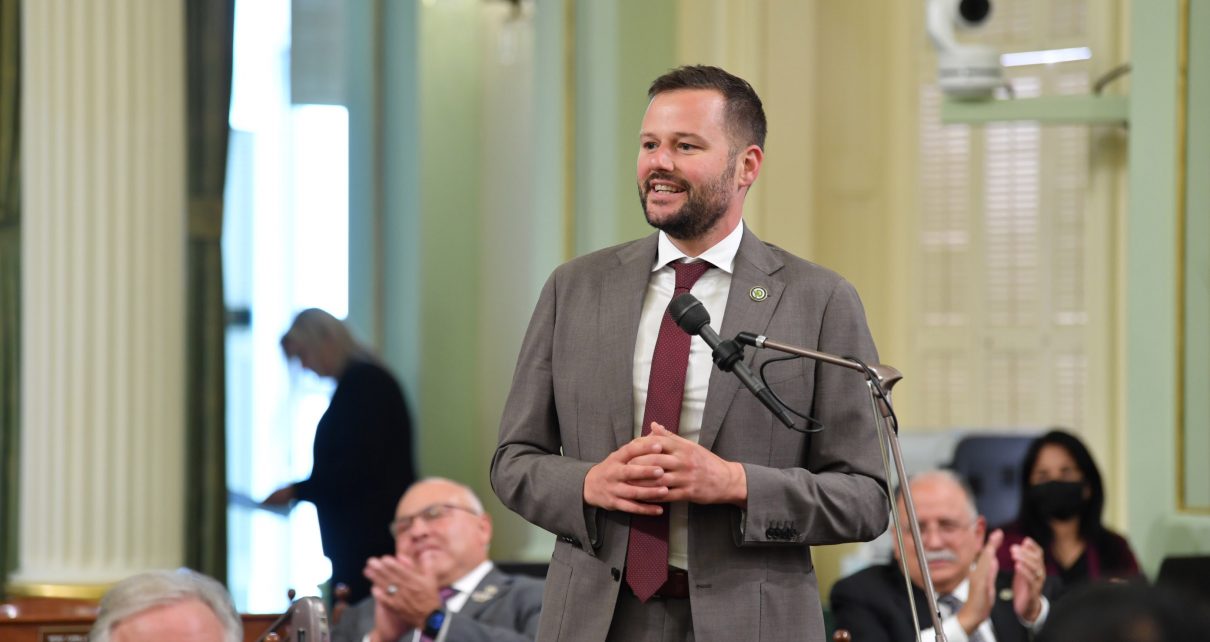
Assemblyman Matt Haney (Photo: a17.asmdc.org)
Bill to Halt Universities From Punishing Students Who Call 911 For Overdoses Awaits Vote In Assm.
AB 602 would expand California’s Good Samaritan law
By Evan Symon, April 22, 2025 6:07 pm
A new bill that would stop colleges and universities from academically punishing students who call 911 for help with overdoses continued to await being heard by a committee this week following a massive rewrite last month.
Assembly Bill 602, authored by Assemblyman Matt Haney (D-San Francisco) would specifically prohibit the Chancellor of the California Community Colleges, the Trustees of the California State University, the Regents of the University of California, and every administrator at any campus of those institutions from adopting or enforcing a rule that imposes disciplinary sanctions on a student solely on the basis of acts of being under the influence of, or possessing for personal use, a controlled substance, controlled substance analog, or drug paraphernalia, under certain circumstances related to a drug-related overdose that prompted the seeking of medical assistance, and would prohibit those acts from being documented in a student’s disciplinary file. AB 602 would also authorize the Chancellor of the California Community Colleges, the Trustees of the California State University, the Regents of the University of California, and every administrator at any campus of those institutions to require a student who has committed one of those acts to complete an assigned activity and would authorize them to document the act and any assigned activity imposed in a student’s administrative file.
In layman’s terms, the bill would stop colleges and universities from punishing students who call 911 for help during a drug overdose, essentially extending California’s Good Samaritan law to students reporting drug overdoses. In addition, the law would not apply to drug dealing, students getting caught with drugs in a non-emergency situation, or to private universities as a whole, as the latter are not state funded.
Assemblyman Haney wrote the bill following reports of students being punished for drug use following an overdose rather than being given drug treatment or therapy options. Many students also worry about probation, the loss of campus housing, or even expulsion for calling authorities during an overdose. Haney said his bill will relieve that and lead to more saved lives as a result, especially with a dramatic doubling of opioid-related deaths in California in only the past 5 years.
Expanding the Good Samaritan law
“No student should have to choose between saving a life and continuing their education,” said Assemblyman Haney. “Especially with the rise of fentanyl related poisonings among young people, where a person takes a substance not knowing it includes fentanyl, we need this law now to protect young people and save lives.
“I want to also be clear. Universities or colleges can still require treatment or counseling. That can still be a part of the next steps once there are interventions. But the punishment part of this is what is so dangerous. California’s Good Samaritan Law already protects people from arrest or prosecution when they call for help during a medical emergency related to overdoses. But those protections do not currently extend to discipline on campuses.”
Students and youth organizations are backing the bill with Haney, promoting a more compassionate alternative on campuses compared to the current system where punishment comes first.
“We talk a lot about destigmatizing mental health challenges and substance abuse disorders. We hold awareness weeks, we put up posters telling students it’s OK to ask for help,” added Youth Power Project executive director Saanvi Arora on Tuesday “But without concrete policy changes like AB 602, these efforts amount to little more than empty promises.”
However, detractors of the bill have said that it would only lead to greater drug use because of the removal of some consequences of using a large amount of drugs. Many colleges and universities were also confused about the bill, as they already have similar policies in place. In a statement, San Diego State University (SDSU) said that their existing policies align with the proposed bill, questioning why AB 602 was even needed in the first place.
“The university already has existing policies that align with and would fulfill the requirements of this proposed legislation,” said San Diego State on Monday. “SDSU has an Amnesty Policy (for individual students) and a Good Samaritan Policy (for Recognized Student Organizations). These policies outline that, generally, those needing assistance, as well as the students and organizations who call for help, will not be sanctioned for violations of the Student Code of Conduct and the Student Organization Code of Conduct related to the incident.”
As the bill began as an antiretroviral drug bill in February and was massively changed with an amendment last month, AB 602 has yet to go before an Assembly Committee. Currently, the bill is expected to be heard next week in the Assembly Higher Education Committee.
- Bill to Require Law Enforcement Disclosure if AI Was Used To Help Write Reports - August 7, 2025
- Gov. Newsom Files FOIA Request To ‘Expose True Cost’ Of L.A. Federal Troop Deployment for Anti-ICE Riots - August 6, 2025
- California Redistricting: How Newsom’s Plan Will Demolish Hard Fought GOP Gains - August 6, 2025




